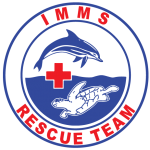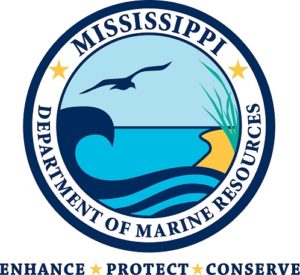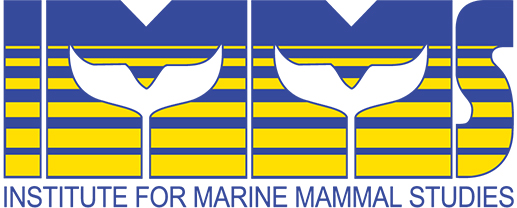2022-Satellite Tagged Sea Turtles "Thane", "Charles", "Tai, and "Trevor Munch"
The Institute for Marine Mammal Studies released three Kemp’s ridley turtles on October 19, 2022 with satellite transmitters attached to their shells. The satellite transmitters will enable us to track the movements of “Thane”, “Charles”, “Tai”, and “Trevor Munch” (who was released on November 7th) after release and is part of an ongoing study conducted by our researchers. These turtles did not come from Mississippi waters. Mid-November 2021, IMMS was approached by our partners at NOAA to assist in rehabilitating sea turtles that had stranded in Massachusetts. These turtles were “cold-stunned”. Since sea turtles are ectothermic, their body temperatures decrease when local water temperatures drop. Most of these sea turtles typically migrate South in the winter time but delays to their migrations causes these events. Every year there are cold stun turtles in the area but these events have increased over the last few years with several hundred turtles stranding on the beaches in and around Cape Cod in 2021!
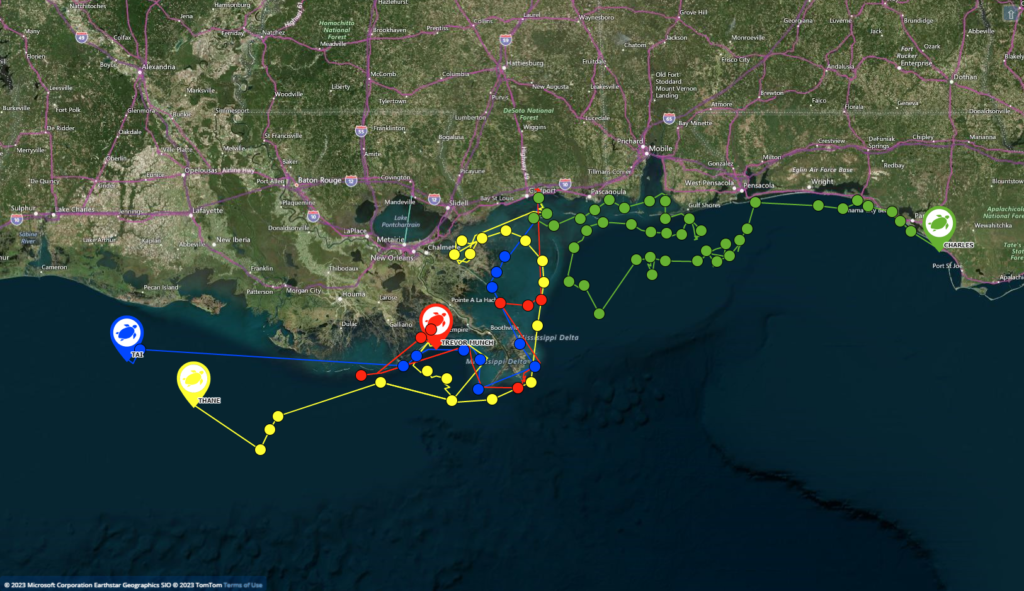
Thane
Charles
Tai
Trevor Munch
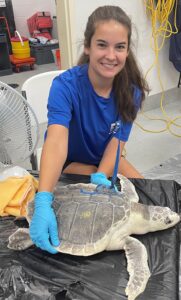
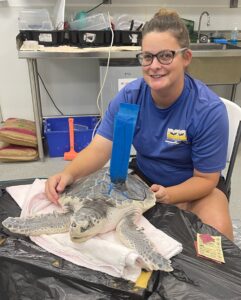
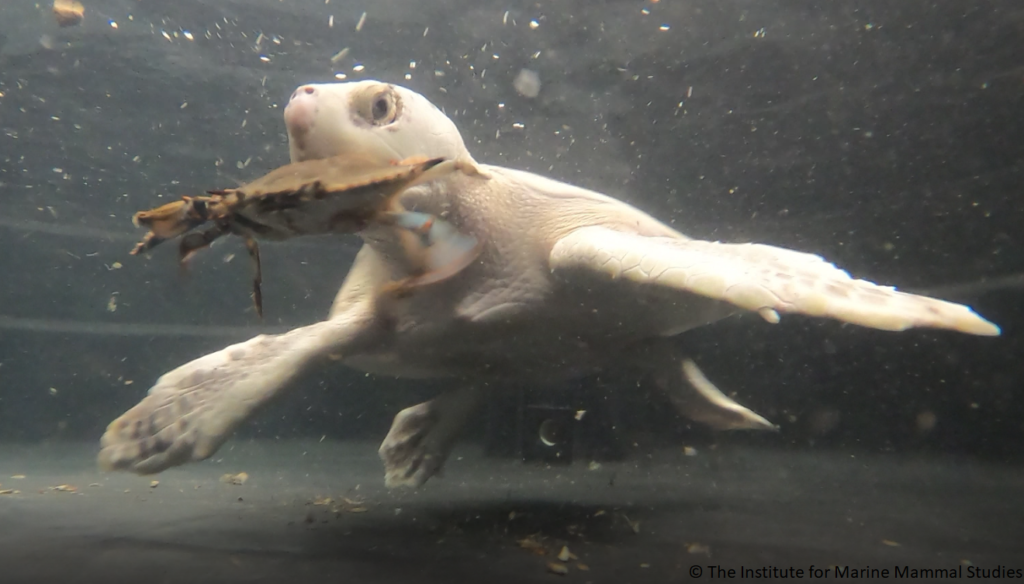

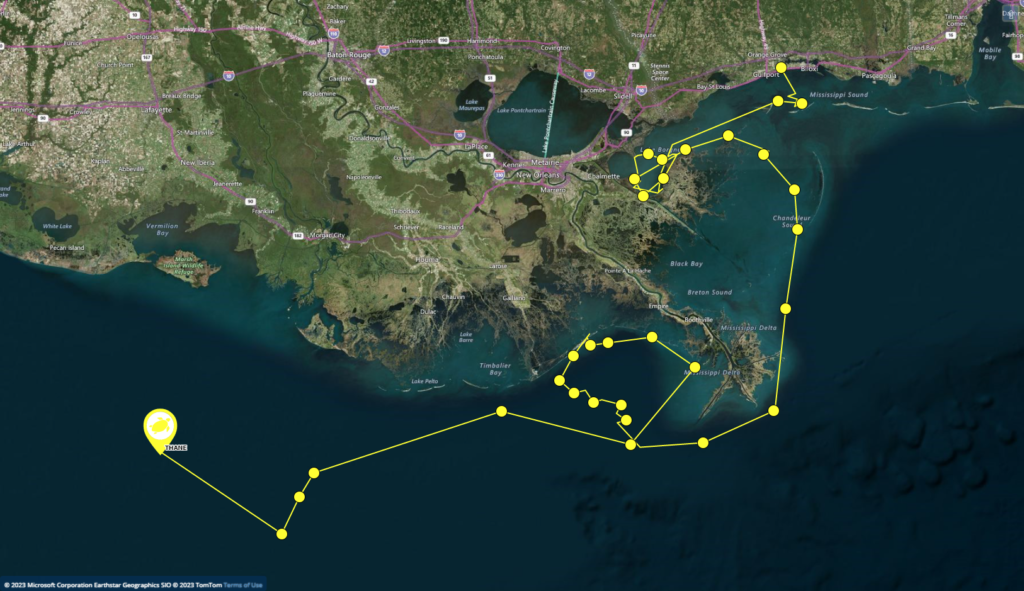
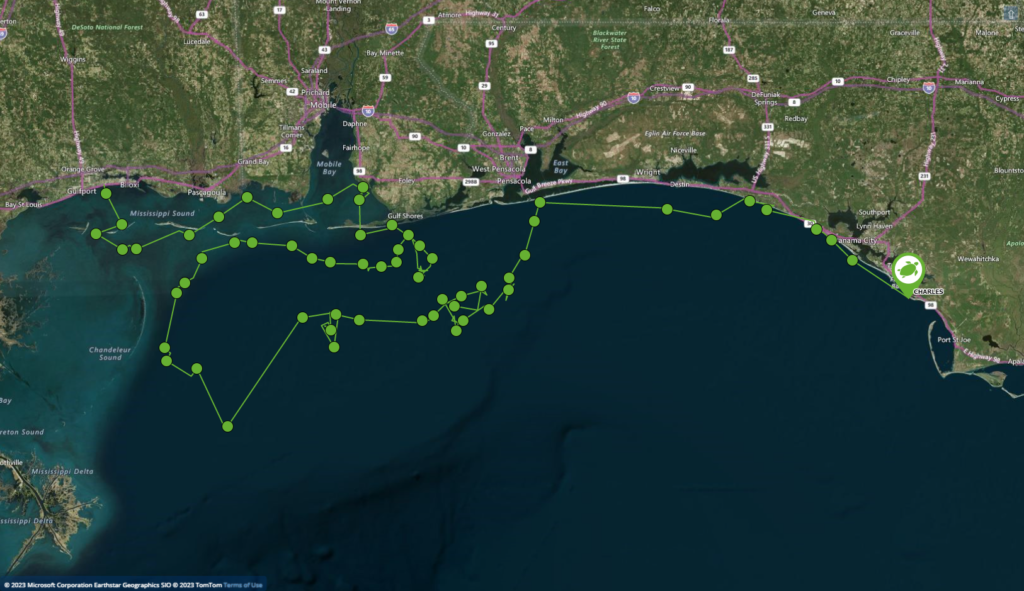
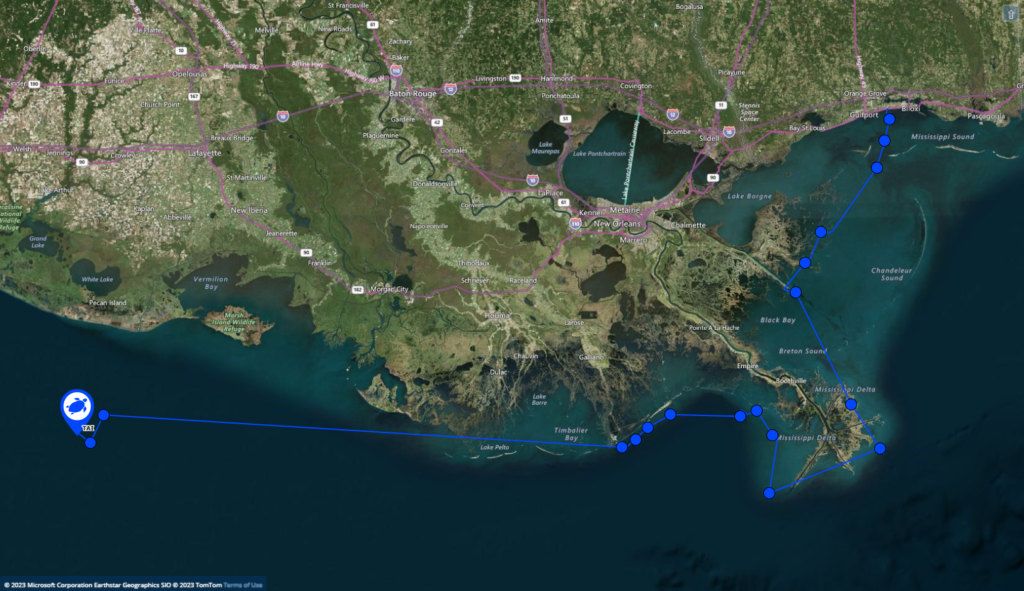
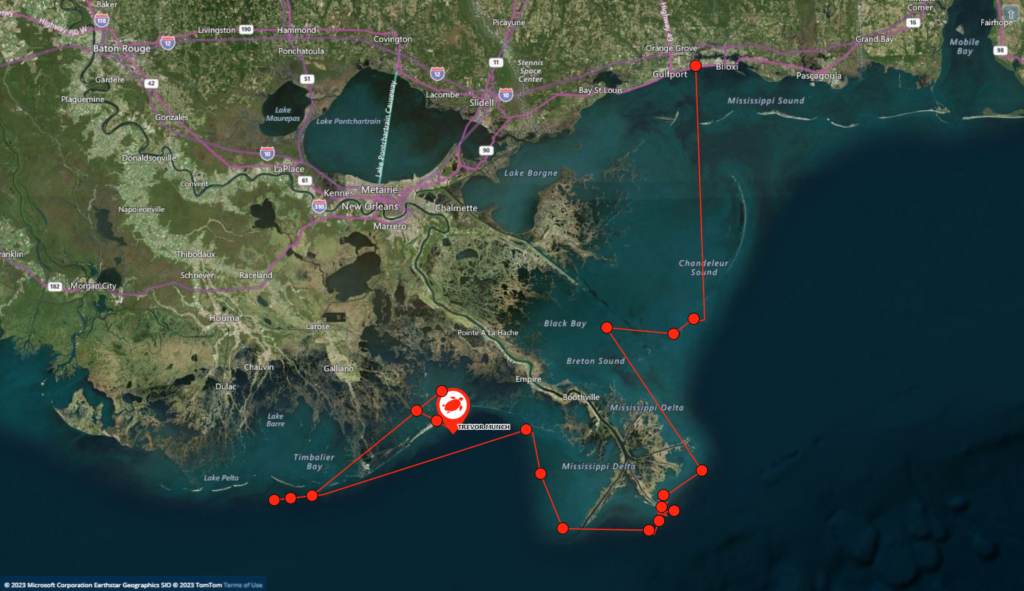
2021-Satellite Tagged Sea Turtle "Winnie 2.0"
On November 3, 2021, The Institute for Marine Mammal Studies in collaboration with Orange Beach Wildlife Center and Management Program successfully released an adult Kemp’s ridley sea turtle with a satellite transmitter in Orange Beach, AL. This turtle was incidentally captured in Orange Beach on October 17th. With coordination between IMMS staff, Orange Beach Wildlife Center and the Alabama Sea Turtle Stranding and Salvage Network Coordinator, the turtle was transported to IMMS for rehabilitation. Fortunately the turtle’s injuries were minor and after receiving care from veterinarians from Mississippi State University’s College of Veterinary Medicine, the turtle was approved for release.
IMMS possesses both state and federal permits to apply satellite transmitters to rehabilitated sea turtles. The Mississippi Sound and adjacent waters are critical habitats for the Kemp’s ridley sea turtle.
Data from this turtle is extremely important as Kemp’s ridleys are the most endangered sea turtle species in the world and tracking the movements of an adult turtle is invaluable to the continued protection of these species.
IMMS would like to thank Orange Beach Wildlife Center for all their efforts. IMMS would additionally like to thank Mississippi Department of Marine Resources (MDMR) for providing the satellite transmitter.
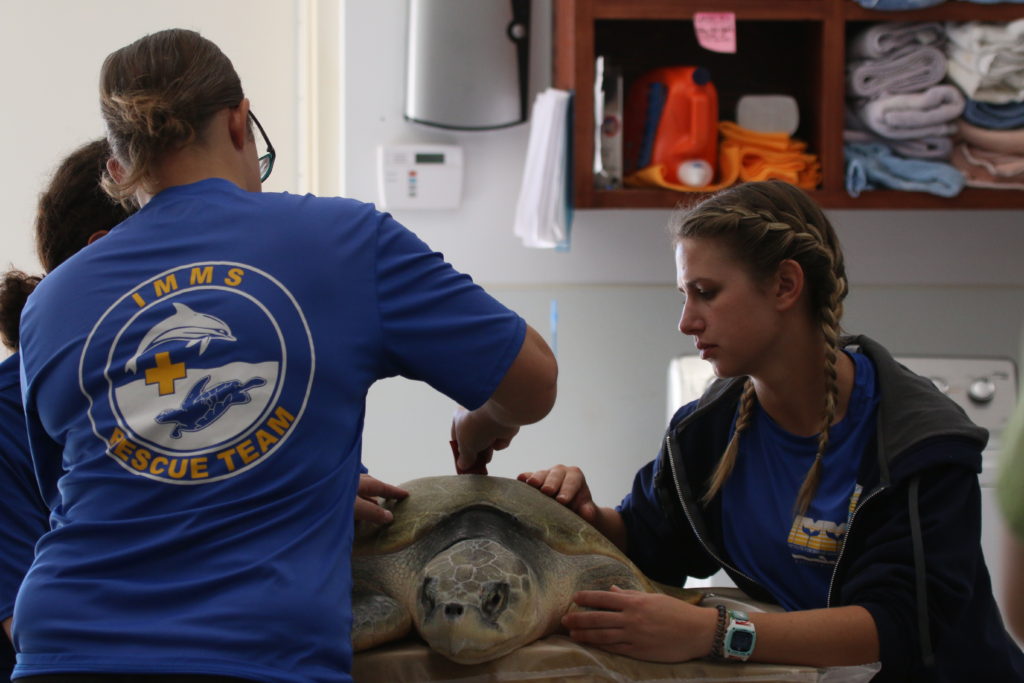
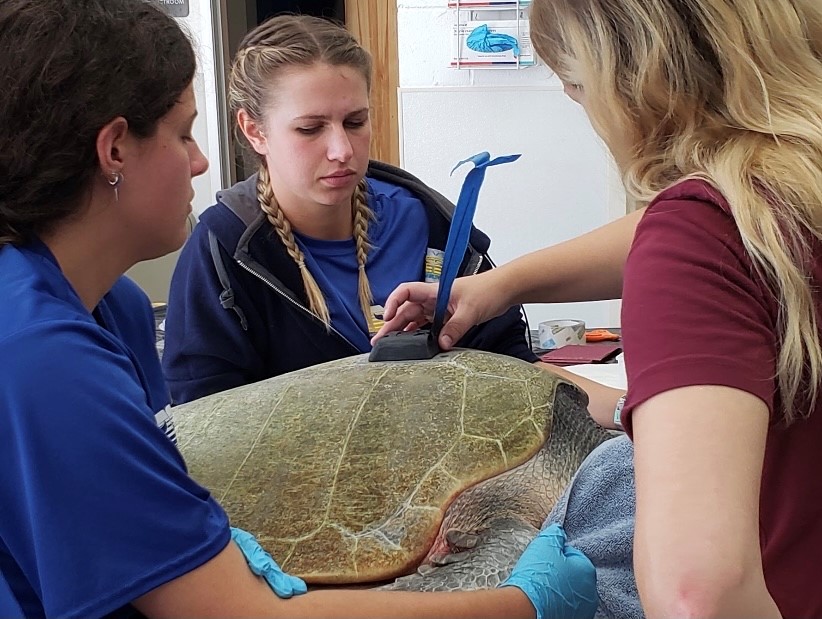
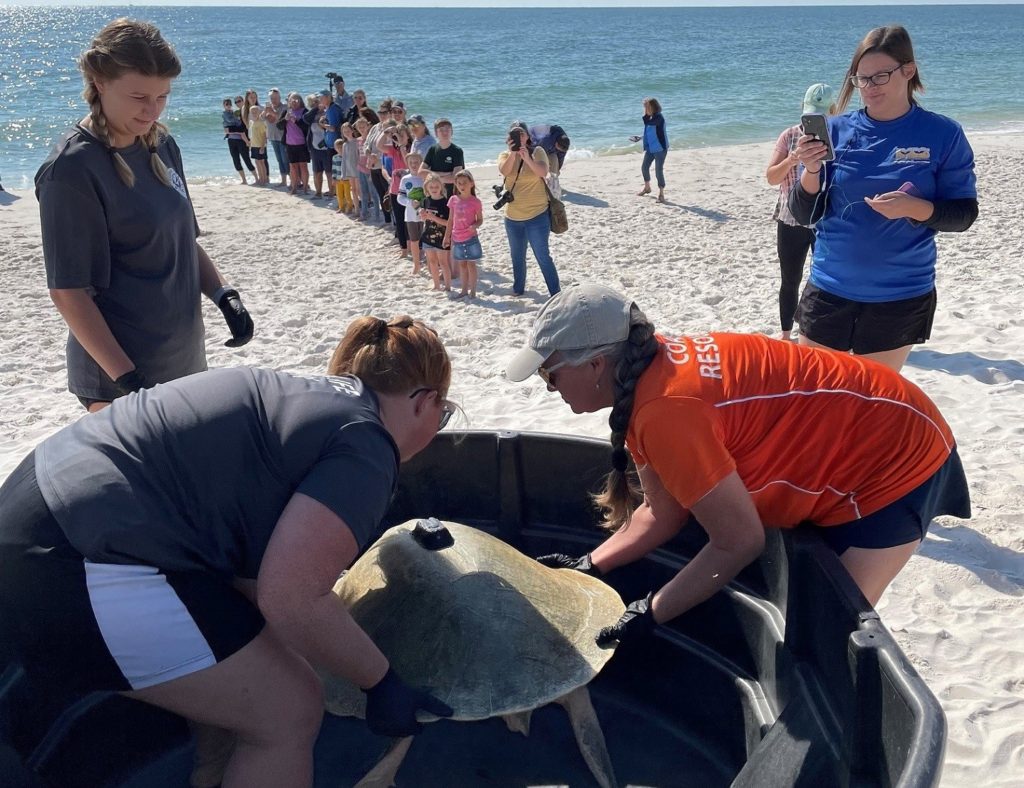
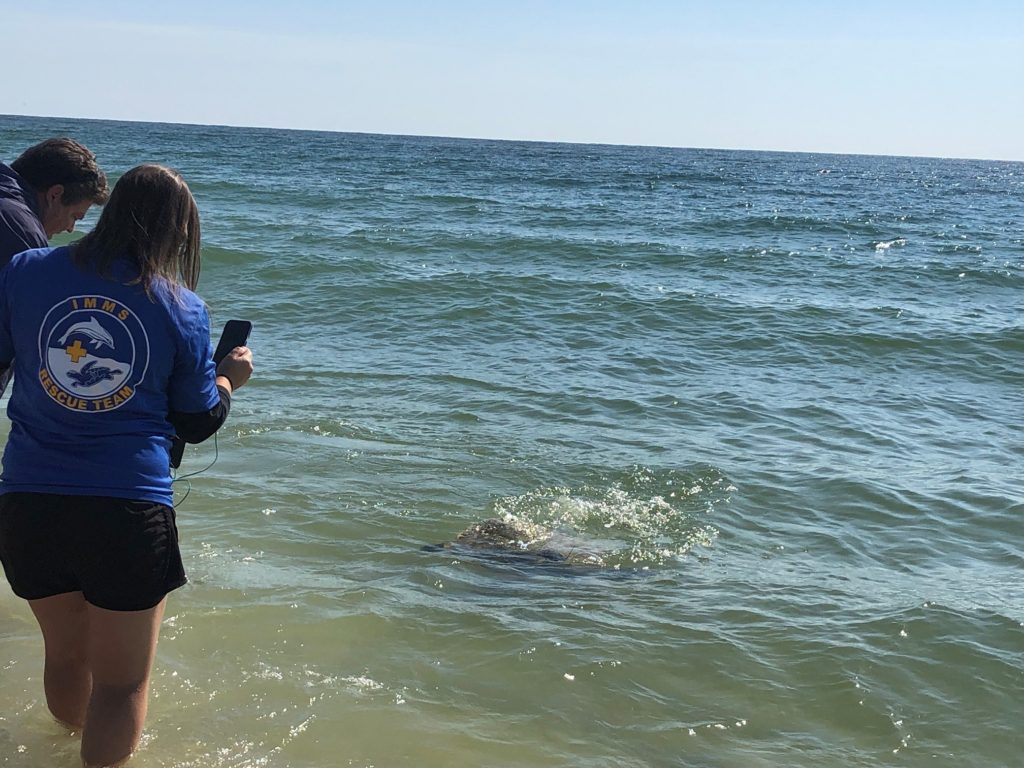
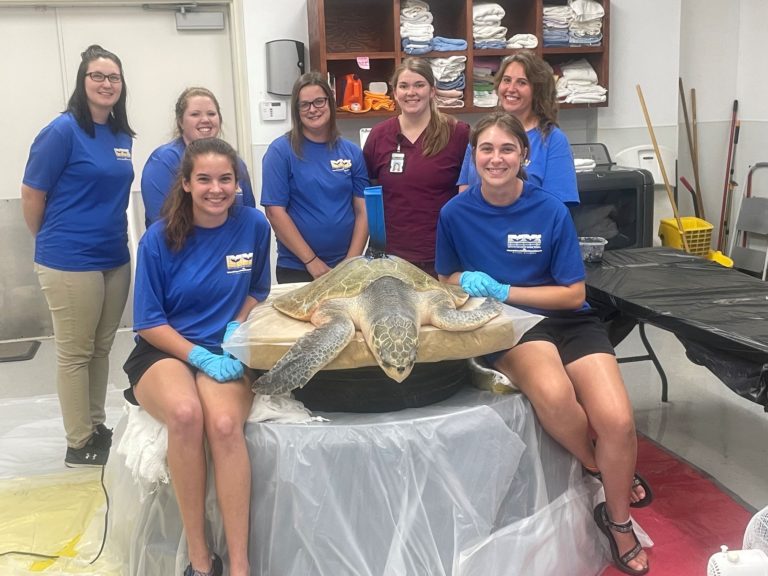
2020-Track of MDMR and IMMS Satellite Tagged Sea Turtles
On December 10, 2020 MDMR and IMMS released two stranded sea turtles rehabilitated by IMMS back into their natural environment on the beach in Pass Christian. Toni, a Kemp’s ridley sea turtle (represented by the red turtle) , and Magnolia, a Kemp’s ridley sea turtle (represented by the green turtle), can be followed on the map below. They all were fitted with satellite tags in a cooperative effort with MDMR to help us better understand the use and suitability of the habitat for these turtles. Each dot represents a satellite transmission.
Toni
Magnolia
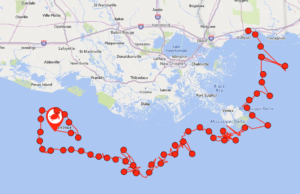
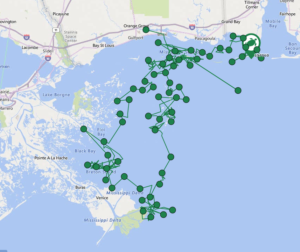
2019-Track of MDMR and IMMS Satellite Tagged Sea Turtles
On Monday, November 25, 2019 MDMR and IMMS released two stranded sea turtles rehabilitated by IMMS back into their natural environment on the beach in Biloxi. Fig Newton, a loggerhead sea turtle (represented by the orange turtle) , and Scar, a Kemp’s ridley sea turtle (represented by the green turtle), can be followed on the map below. On December 28, 2019, Shucker, a Kemp’s ridley sea turtle, was also released (represented by the blue turtle). They all were fitted with satellite tags in a cooperative effort with MDMR to help us better understand the use and suitability of the habitat for these turtles. Each dot represents a satellite transmission.
Fig Newton
Scar
Shucker
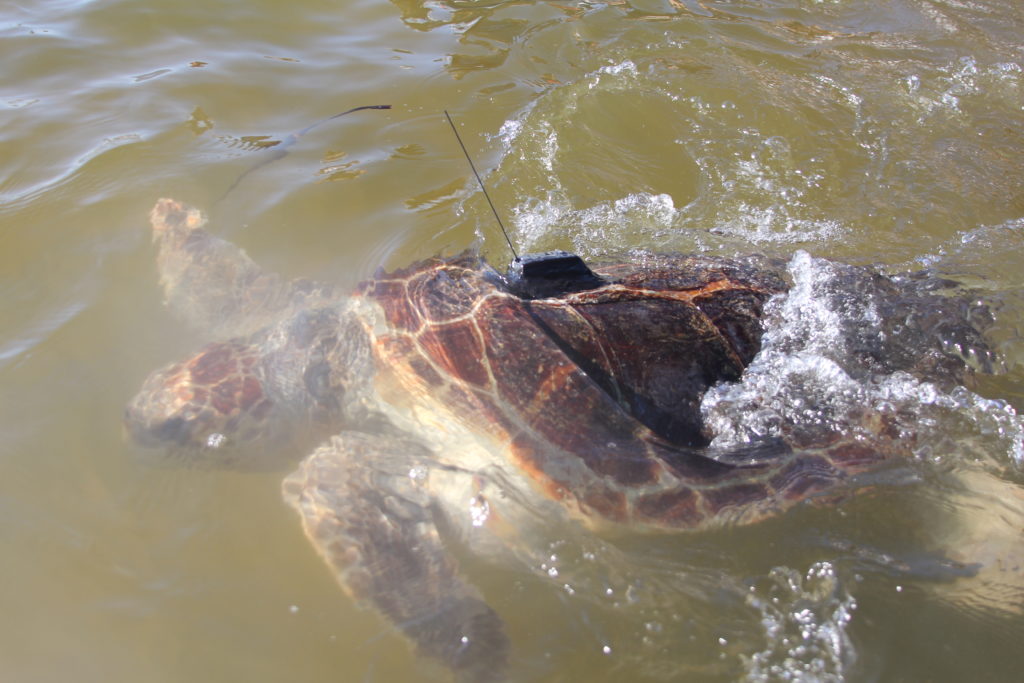
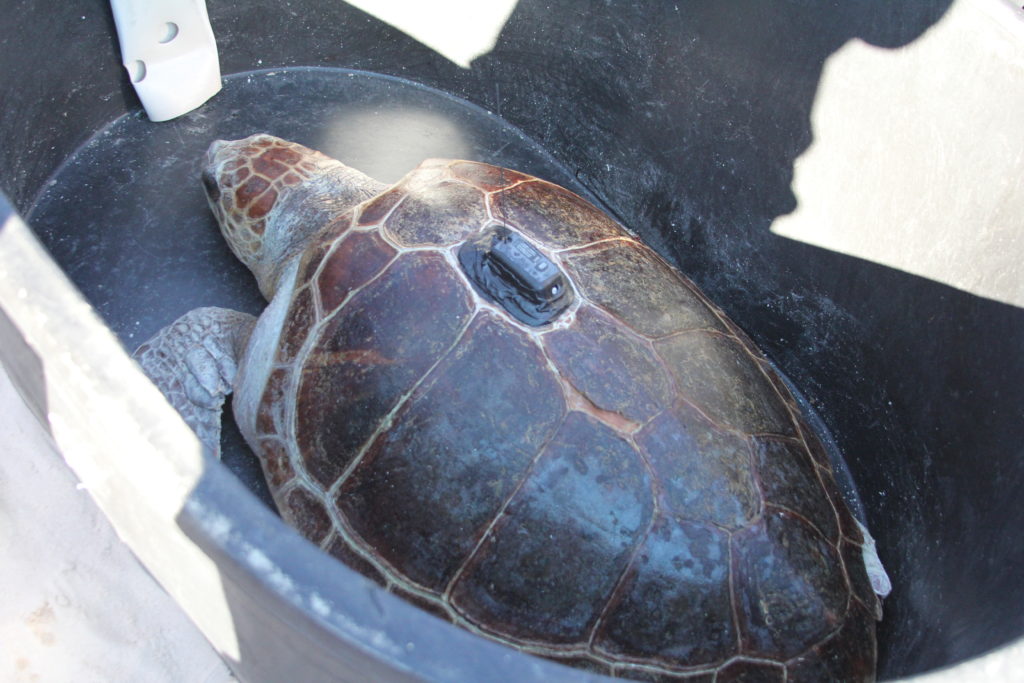
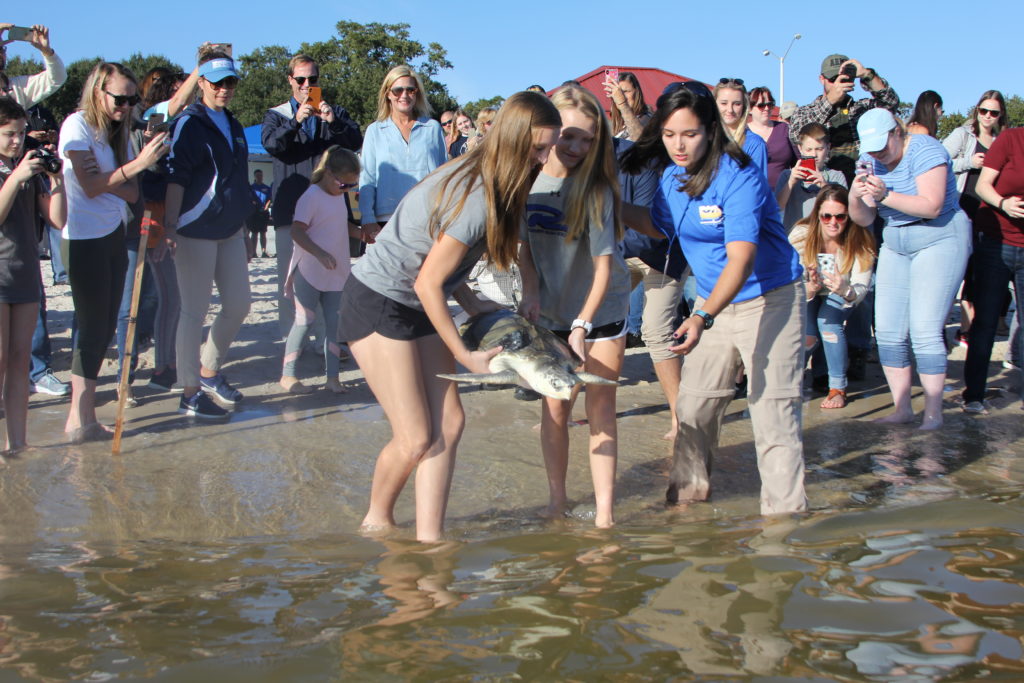
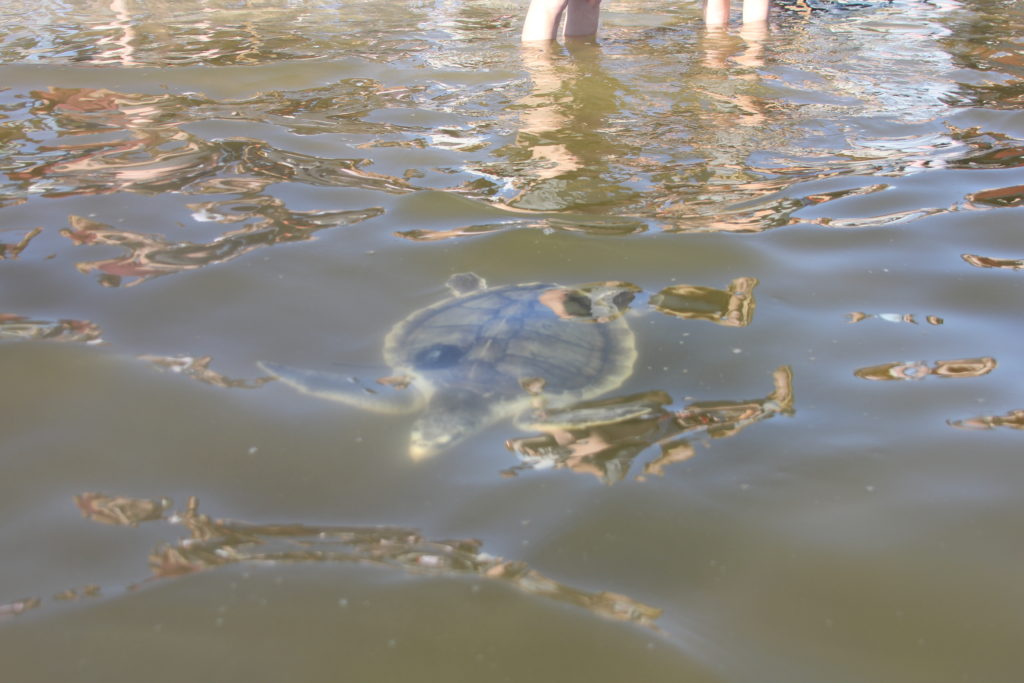
LT19-005 (Fig Newton)
Fig Newton was the fifth turtle that was rescued by IMMS this year. She is a loggerhead which is the second largest sea turtle species. She was found floating near Horn Island by a fisherman and was picked up by IMMS research team on May 27. The animal was lethargic and was very ill as determined by the veterinary medical team from Mississippi State University. She was treated for pneumonia and her shell was treated topically. After recovery from her pneumonia, she was moved to a bigger, deeper pool where she did exceptionally well. Her diet consisted of a variety of items including live crabs, fish, and squid. After a full health assessment by veterinarians it has been determined that she is recovered and ready to be released back into her natural environment!
LT19-022 (Scar)
Scar was the twenty second turtle to be rescued by IMMS this year. It is a Kemp’s Ridley which is the smallest and most critically endangered species of sea turtle in the world. It was caught by a fisherman on a hook and line on September 15 in Waveland, MS. The location of the hook was determined by X-rays, and the hook was removed from the esophagus or throat by making a small surgical incision with local anesthesia by Mississippi State veterinarians. It was given antibiotics to prevent infection in the damaged tissue. A soft diet was given at first, but eventually it was fed his regular diet of blue crab along with a diet advised by the veterinarians. After a complete health check, it was determined that the animal is ready to be released back into his natural environment.
LT18-039 (Shucker)
Shucker, a Kemps Ridley, was caught on a fisherman line and rehabilitated at IMMS. Shucker was released on Saturday December 28th, 2019 approximately 2 miles southwest of of Fort Massachusetts on Ship Island.
Media Coverage
